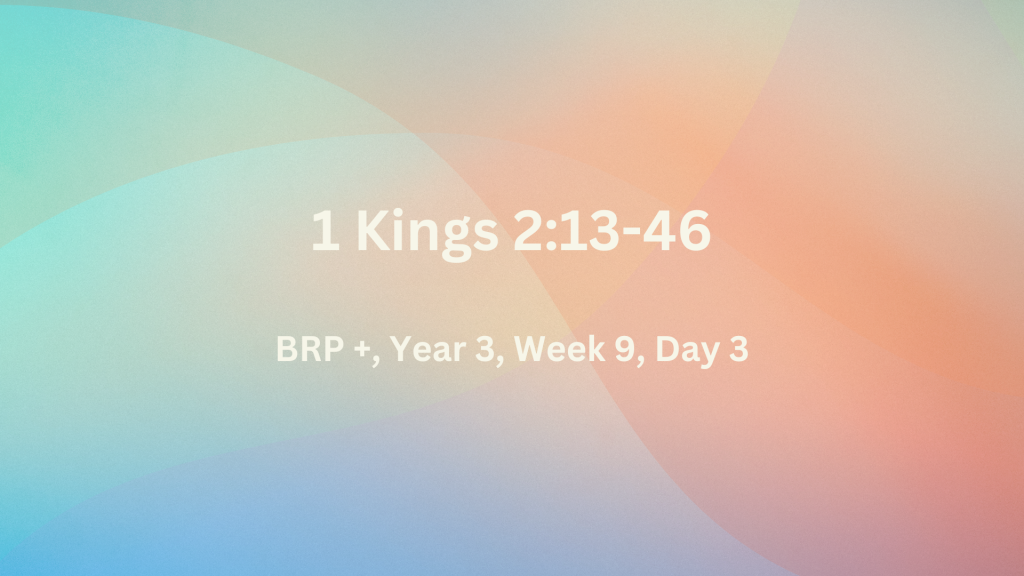1 Kings 2:13-46
Q.1. Was the execution of Prince Adonijah justified? Why was Abiathar the priest dismissed from serving? – (1 Kgs.2:13-27)
Solomon was the last son born to David. Prince Adonijah was much older (c.f. 2 Sam.3:4; 12:24-25). Therefore, on the surface it may have seemed like a reasonable assumption for Adonijah to put forth his claim to the throne. However, his scheme to ascend the throne without consultation with his highly acclaimed father, and his defiance against God’s call upon Solomon were inexcusable (1 Kgs.2:15). After David died, Adonijah again sought to elevate himself. He asked Solomon via his mother, Bathsheba, to give him the hand of King David’s beautiful Shunamite concubine (1 Kgs.2:13-18). Solomon interpreted Adonijah’s request as a claim to prominence, thus making a way for him to become a rival king. Consequently, Adonijah forfeited his life for his treasonous intention (1 Kgs.2:19-25). Solomon saw no future or wisdom in allowing the kingdom to be divided.
Q.2. Why was it necessary for King Solomon to have Joab put to death? – (1 Kgs.2:28-34)
Joab had been a strong leader of David’s army. However, the way he operated was at variance with how David, who trusted in God, wanted. Joab’s jealous treachery in killing his rivals, was also an offence to God – 5 “Now you also know what Joab the son of Zeruiah did to me, what he did to the two commanders of the armies of Israel, to Abner the son of Ner, and to Amasa the son of Jether, whom he killed; he also shed the blood of war in peace … (1 Kgs.2:5). David had a genuine fear that Joab, with his seniority and carnality, would undermine Solomon. Besides, Joab had supported Adonijah’s grab for power (c.f. 1 Kgs.1:7; 2:22). When Adonijah was deposed, Joab fled for refuge to the tent of meeting (1 Kgs.2:28). Solomon sent his army captain, Benaiah, to execute him for his blood thirsty crimes. When Joab refused to leave the tabernacle, Solomon commanded Benaiah to slay him in the tent – that you may remove from me and from my father’s house the blood which Joab shed without cause … so shall their blood return on the head of his descendants forever, but to David and his descendants and his house and his throne, may there be peace from the Lord forever (1 Kgs.2:31 & 33).
Q.3. In what way was Shimei complacent about the grace he was shown by Solomon? Could this be said of you? – (1 Kgs.2:36-46)
Solomon knew that Shimei, from the former King Saul’s tribe of Benjamin, was a troublemaker. He ordered Shimei to build a home in Jerusalem, so that he could keep an eye on him. He further commanded Shimei not to leave the precincts of Jerusalem, or he would pay with his life (1 Kgs.2:36-38). Shimei probably considered himself fortunate to not be executed for his insulting rant against David, Solomon’s father (c.f. 2 Sam.16:5-14). However, three years later he risked death by chasing after two of his servants (1 Kgs.2:39-40). This would prove to be a fatal mistake that would cost him his life (1 Kgs.2:41-46).

